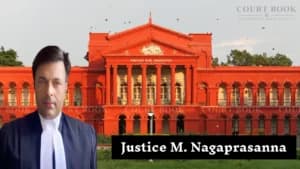In a significant ruling dated June 23, 2025, the Andhra Pradesh High Court has clarified that seeds and leaves of the cannabis plant, when not accompanied by flowering or fruiting tops, do not fall under the definition of 'Ganja' as per the Narcotic Drugs and Psychotropic Substances Act, 1985 (NDPS Act). The judgment was delivered by Hon’ble Dr. Justice Venkata Jyothirmai Pratapa in Criminal Petition No. 5306 of 2025.
The petitioners, a married couple, were arrested and booked under Sections 20(b)(ii)(C), 25 read with Section 8(c) of the NDPS Act. They were allegedly found in possession of 32 kilograms of Ganja, which they had purchased from Odisha to resell in Andhra Pradesh at higher prices. Seeking regular bail under Sections 480 and 483 of the Bharatiya Nagarik Suraksha Sanhita, 2023, they challenged the classification of the seized material as 'Ganja'.
The central argument by the petitioners was based on the statutory definition of 'Ganja' under Section 2(iii)(b) of the NDPS Act, which states:
“Ganja, that is, the flowering or fruiting tops of the cannabis plant (excluding the seeds and leaves when not accompanied by the tops), by whatever name they may be known or designated.”
Justice Pratapa, agreeing with the petitioners' counsel, observed:
Read Also:- Only Landowners Can Request Private Surveys: Andhra Pradesh HC
“As rightly put by the learned counsel for the petitioner, the definition of Ganja under NDPS Act takes in its ambit only the flowering or fruiting tops of cannabis plant and excludes the seeds and leaves when not accompanied by the tops. Thus, the definition of 'Ganja' is restricted and it does not include the seeds and leaves of Ganja plant.”
The Court noted that the police failed to follow mandatory procedures, especially the requirement of separating the flowering tops from other parts of the plant before weighing the contraband. This procedural lapse became a decisive factor in granting bail.
The State, represented by the Assistant Public Prosecutor, strongly opposed the bail, highlighting the commercial quantity involved. However, the Court emphasized that mere possession of unsegregated cannabis material without proper classification cannot automatically invite the rigors of the NDPS Act.
Read Also:- Police Must Stay Away from Land Disputes Disguised as Amicable Settlements: Andhra Pradesh High Court
After considering the submissions, the Court allowed the criminal petition and granted bail with strict conditions:
- The petitioners were directed to execute a personal bond of ₹20,000 each with two sureties of the same amount.
- They must report to the local police station every Sunday from 10:00 AM to 5:00 PM until the chargesheet is filed.
- They were restrained from influencing any witnesses or tampering with evidence.
“Considering the submissions made and on perusing the material on record, this Court is inclined to release the petitioners on bail,” the judge concluded.
Case Title: Killo Subbarao and Others vs. The State of Andhra Pradesh















